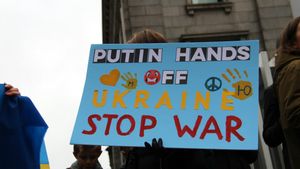Germany is preparing for its annual Volkstrauertag, or National Day of Mourning, which will take place on November 17, 2024. This significant event is dedicated to honoring the victims of war and violence, reflecting the nation’s commitment to remembrance and peace. Various ceremonies and events are being organized across the country, blending traditions with communal remembrance.
One of the notable observances will be held in Wunstorf, where the local chapter of the Volksbund Deutsche Kriegsgräberfürsorge has invited citizens to join at the Stadttheater at 11 AM. The contributing program not only includes speeches but also features music from the Camerata Capriccio orchestra from the Wunstorf music school. Local politician Wiebke Osigus is scheduled to deliver the keynote address, adding political significance to the ceremonies.
Following the indoor event, attendees will participate in a solemn march to the nearby Honorary Memorial, located on Hindenburgstraße. This reflects the broader theme of the day, which is about remembering both local and international victims of conflict. City officials and residents are expected to unite as they lay wreaths and participate in moments of silence.
Meanwhile, smaller gatherings will occur across various towns and villages within the region, each nurturing their own local customs. For example, Blumenau and Liethe will hold their remembrance activities concurrently, with meetings scheduled to begin at 10:45 AM. Similar gatherings are expected throughout the area, with unique programming including participation by local congregations and youth.
Further north, the community of Bad Waldsee is opting for a more literary approach by hosting a special reading event at the Stadtbücherei. The reading, orchestrated by city archivist Michael Wild and Stefanie Rebhan, will focus on historical documents and firsthand accounts from World War I, aiming to impart the human toll of war. This initiative not only showcases historical facts but endeavors to provoke genuine emotional responses from the audience.
Crunching statistics, the day carries enormous historical weight: the Volkstrauertag was first introduced as a way to honor the two million German soldiers who fell during World War I. Rooted deeply within the post-war sentiment, the day was envisioned as not just memorializing those lost but also acting as a dire reminder of the consequences of conflict, urging all to strive for peace.
Across the country, notable observances define the essence of the Volkstrauertag. Berlin’s Bendlerblock, the former military headquarters, will see formal ceremonies including wreath-laying rites and speeches from prominent military leaders recognizing the sacrifice of service members. This reminds people of the broader sacrifices made globally across various conflicts.
Directly reflecting on the impact of the events, Helmstedt will also host several events focusing on remembrance, inviting residents to commemorate their war heroes. The week leading up to the memorial day is filled with activities, including educational programs for young people, promoting the importance of history and reflection on past atrocities.
Numerous local governments are encouraging residents to participate fully, with some communities preparing to engage younger demographics through educational events leading up to the day itself. Special classes focused on the significance of remembrance are being offered, emphasizing shared responsibility for peace.
This year, the overarching theme across all events is peace, with multiple towns scheduling peace seminars alongside traditional observances to promote dialogue about current international conflicts and the importance of peacebuilding.
All these events highlight the complexity of remembering those lost to conflict during the Volkstrauertag. At heart, it serves as both commemoration and cautionary tale, creating space for reflection on the past and its lessons for the future. It's also noted as one of Germany's more communal observances, fostering unity among the citizens, pushing everyone to engage with their shared heritage.
Back to Wunstorf, the emotional charge and sense of local pride will be palpable as the community converges not only to honor the dead but to acknowledge the burdens of the past, ensuring they resonate with future generations.
Whether through official ceremonies, intimate local gatherings, or unique artistic presentations, Germany’s Volkstrauertag denotes more than just ritual; it’s about forging connections and commitment to preventing future horrors of war.



